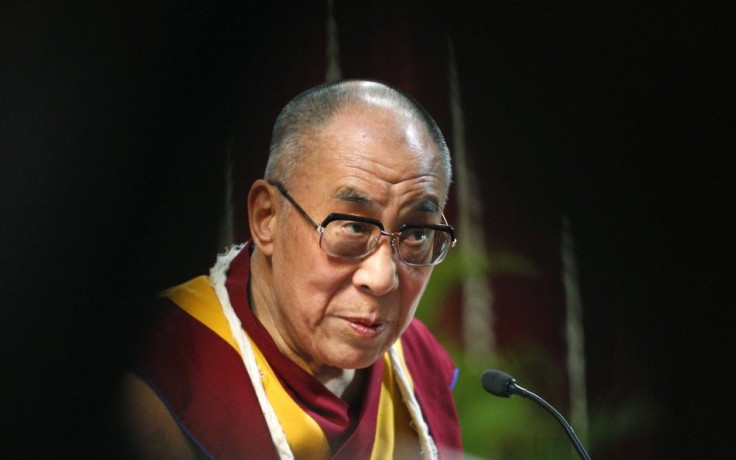Dalai Lama wants to retire amid efforts from China to sabotage succession

Amid the escalating speculation over succession, the Dalai Lama has yet again asserted his plans to retire. In a statement on the 52nd Anniversary of the Tibetan National Uprising Day, the veteran Tibetan Buddhist spiritual leader not only reiterated his decision to step down from political power but also stated that Tibet needs a leader elected by the people. This assertion takes significance in the backdrop of the uncertainty over how the next leader will be chosen and China's growing interference and efforts to sabotage the succession.
As early as the 1960s, I have repeatedly stressed that Tibetans need a leader, elected freely by the Tibetan people, to whom I can devolve power. Now, we have clearly reached the time to put this into effect, the spiritual leader said in a statement posted on the internet.
Informing that he would formally propose that the necessary amendments be made to the Charter for Tibetans in Exile during the forthcoming session of the Tibetan Parliament in Exile, which begins March 14, he added, Since I made my intention clear I have received repeated and earnest requests both from within Tibet and outside, to continue to provide political leadership. My desire to devolve authority has nothing to do with a wish to shirk responsibility. It is to benefit Tibetans in the long run. It is not because I feel disheartened. Tibetans have placed such faith and trust in me that as one among them I am committed to playing my part in the just cause of Tibet. I trust that gradually people will come to understand my intention, will support my decision and accordingly let it take effect.
Although the exiled spiritual leader and the current Dalai Lama, Tenzin Gyatso, has constantly asserted his identity as a monk and distanced himself from political role, he has emerged as face of the Tibetan struggle against the Chinese hegemony of the era.
The Dalai Lama, who is revered as the 14th reincarnation of the Buddha Avalokitesvara, fled China in 1959. The leader of the Tibetan exile group, headquartered in Dharamsala in northern India, has been hinting at a retirement since mid-2010. He had also expressed happiness that a new set of political leaders were emerging among exiled Tibetans.
China's interference in succession
China, which has ruled Tibet since 1950, has begun interfering in the course of succession. With a close eye on the future leadership of Tibetans at home and abroad, Beijing seems to be working on getting a Chinese-nominated puppet into the role of the Tibetan leader.
As recent as March 8, China asserted that the Dalai Lama, does not have a right to choose his successor. The 76-year-old Dalai Lama must follow the historical and religious tradition of reincarnation, a Chinese official said Monday.
Stating that Dalai Lama had no right to abolish the institution of reincarnation, Padma Choling, the Chinese-appointed governor of Tibet, said, I don't think this is appropriate. It's impossible, that's what I think.
This argument countered the 14th Dalai Lama's earlier plans of picking his successor or letting a leader emerge through democratic elections.
Choling, a Tibetan and a former soldier in the People's Liberation Army, added, I am afraid it is not up to anyone whether to abolish the reincarnation institution or not.
Beijing maintains that the government has to approve all reincarnations of living Buddhas, or senior religious figures in Tibetan Buddhism.
Stirring fears that there will be two Dalai Lamas, China has already begun feverishly searching for a puppet.
The interference began as early as mid-1990s when the government put the 11th Panchen Lama, the second highest figure in Tibetan Buddhism, in exile. In 1995, Dalai Lama named a boy in Tibet as the reincarnation of the previous Panchen Lama. Gedhun Choekyi Nyima, the Dalai Lama-appointed Panchen Lama, is now 22 and is the youngest political prisoner in the world.
Tibetans are now hoping to see 17th Karmapa Lama, Ogyen Trinley Dorje, take over power and lead the crusade against the Chinese oppression.
New Prime Minister
Meanwhile, the Tibetan community in exile will vote next week to elect a new Kalon Tripa or the prime minister. The elected leader may take over Dalai Lama's political functions if the constitutional changes allow.
On March 1, three candidates for the PM post faced off in an internationally-televised debate in Washington. Lobsang Sangay, a Tibetan-American affiliated with Harvard University; Tenzin Tethong, a former representative of the Dalai Lama in New York and Washington; and Tashi Wangdi, who has run a half-dozen of the government-in exile's departments over the years, are the contenders.
Tibetans in exile will directly elect a prime minister for the third time, along with members of the 15th Parliament-in-Exile on March 20.
© Copyright IBTimes 2025. All rights reserved.





















